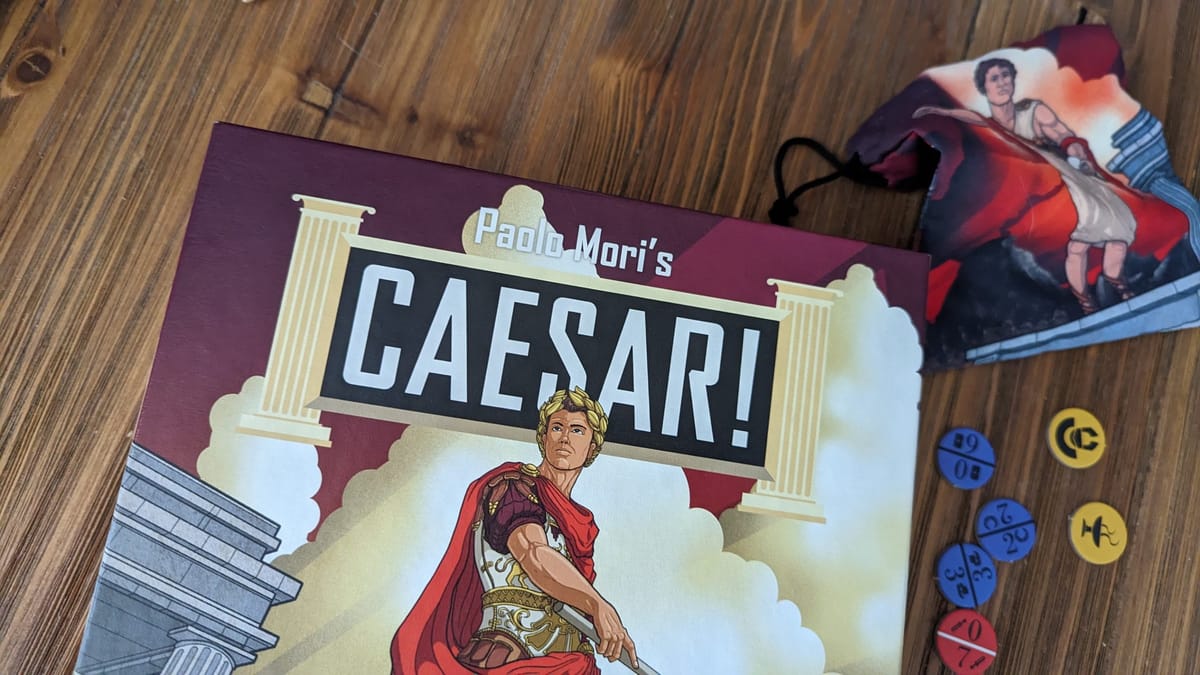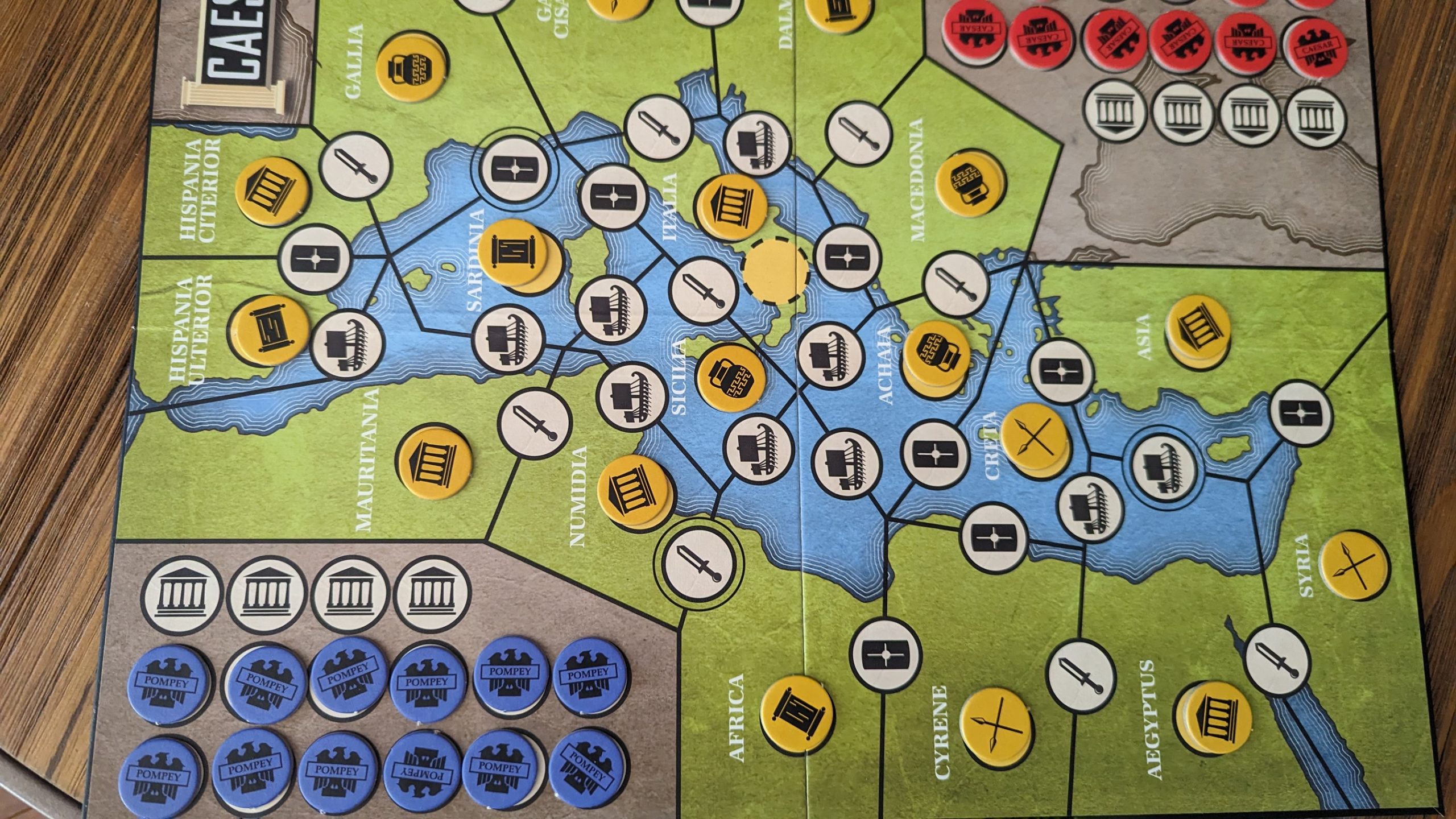
Caesar places its two players in the sandals of Caesar and Pompey, vying for influence in the final days of the Roman republic before the transition to empire. It isn’t particularly innovative, nor will it blow anyone’s mind. What it is is area control honed down to its essence, as if the aliens from Dark City shifted their focus to board game genres and found the soul of area control games.
Sitting down to play Caesar, I felt like I had been transported into a separate branch of reality. All of the hallmarks of a pared-down area control game were there and quite recognizable, but everything had been tweaked and abstracted in a way that made the genre I cut my cardboard teeth on feel entirely foreign. Players take turns using their tokens to establish control of different regions of the map, but instead of being put inside of regions, tokens are placed in border spaces that correspond to influence tokens’ three types. Of course, it’s not as simple as just putting a single value down that applies to both regions, these tokens have two values on them that only apply to the region they’re facing, so usually whenever you’re deciding to invest in a region, you’re also weakening your position in adjacent regions. Players continue this dance of placing tokens and drawing replacements from their bag until a region’s border spaces are filled, at which point the player with the most strength there places one of their control tokens ( along with extras on the border of any neighboring regions they already control), getting one step closer to winning, and the player who placed the last influence token to finish off that region gets its bonus token.
These bonus tokens have absurdly powerful abilities, with tactics tokens giving an entire extra turn, wealth tokens providing an extra influence draw, raising that player’s hand limit, might tokens flipping already placed influence, simultaneously denying control and bonuses in adjacent regions, and the all-important Senate token cumulative extra control token placement.
Small hand sizes and limits on where tokens can be placed mean that Caesar is, by necessity, a game of tactics instead of overarching strategy. Combining everything together leads to the true genius of Caesar, how it staves off AP with constricted options, allows come-from-behind wins that keep games tense, and utilizes the perfect amount of randomness to defy mastery but still keep every win feel truly earned.

Caesar also Comes with two modular mini-expansions, both of which easily fit my rules for good expansions by tweaking knobs to make the game better adapt to differing tastes without adding too many rules. Centurions add in the titular bonus markers and their influence tokens- when a player acquires a centurion bonus, they get their choice of centurion influence to add to their hand instead of drawing from the bag at the end of their turn, which serves to make the game a smidge more strategic for players who had found the base game a smidge to random for their
tastes. Poison, on the other hand, shakes up the core experience for people who have played it enough for it to become stale. Poison is deceptively simple-all it does is add 3 bonus tokens
that reduce an opponent’s hand Size by one when acquired, but in practice, it shuffles which areas players need to prioritize, turning the game on its head. Yes, it introduces the alternate victory condition of reducing your opponent’s hand to nothing, but taking wealth into account, losing to a depleted hand is almost always avoidable. The game is dramatically altered, but it by no means revolves around the new poison tokens, but instead, previously ignorable tokens like wealth have a newfound importance. Might transforms from being simply useful to being a lynchpin that can both enable and shut down poison strategies. In short, Caesar’s mini- expansions embellish the core experience without losing sight of what made it great in the first place. I’d definitely shy away from using either in anyone’s first play, but they execute their purposes perfectly.
Caesar!: Seize Rome in 20 Minutes!
Great
Caesar may appear to be a dinky little two-player filler, but make no mistake, contained in its box is the very soul of two-player area control.
Pros
- Simple rules that everyone can learn
- Games rarely devolve into a state where they are entirely unwinnable for either side until the very end
- Restricted options defy AP and keep play at a fast clip
Cons
- Tokens feel thin and a smidge cheap
- Extremely abstracted
- Might be a bit too luck dependent for some
